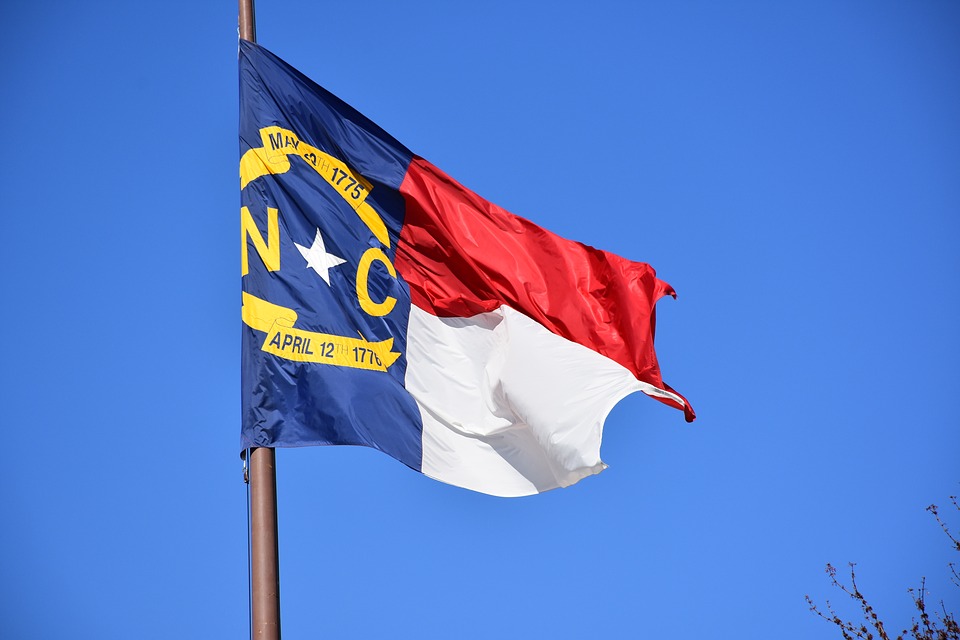
5 ex-North Carolina governors rebuke lawmakers on amendments
RALEIGH, NC -- Associated Press Aug 13, 2018 4:44 pm. North Carolina's five living former governors delivered an extraordinary rebuke Monday to the Republican-dominated legislature for two constitutional amendments that lawmakers put on the fall ballot, saying they would shred gubernatorial power and government checks and balances if approved.
By Gary D. Robertson
The ex-governors — three Democrats and two Republicans — gathered for a rare appearance in the old Capitol, urging voters to defeat the two November ballot questions.
Democrats Jim Hunt, Mike Easley and Beverly Perdue and Republicans Jim Martin and Pat McCrory served from 1977 through 2016. Some would appear to be unlikely allies. Perdue narrowly defeated McCrory in the 2008 gubernatorial election.
"It would be a mistake to say this is a partisan fight between Republicans and Democrats. It's worse — it's legislators versus governor," said Martin, governor from 1985 to 1993.
Hunt, a four-term governor who left office in 2001, added the amendments are "really about whether or not a few politicians in the legislature will increase their power at the expense of the people of North Carolina."
Current Democratic Gov. Roy Cooper didn't attend, but has sued to prevent votes on the two amendments this November. He contends the questions are so false and misleading as to be unconstitutional themselves. Later this week, a three-judge panel will hear legal requests from Cooper and from interest groups that sued to get four questions off the ballots.
The former governors' event emphasized the stakes and the potential rebalance of government powers if the amendments are approved. Governors would no longer have sole power on filling nearly all judicial vacancies and would be cut out of making appointments to the state elections and ethics board and possibly other key state boards and commissions.
"Never have five of us gotten together and stuck it to you on the same issue," said Easley, governor from 2001 to 2009. "So you can believe we believe in what we are saying to you."
Republican House Speaker Tim Moore and Senate leader Phil Berger said in a release they "respectfully disagree with these governors" and "it's not surprising former governors oppose checks and balances on the unilateral authority of their office."
Before the news conference, other Republican lawmakers struck hard, listing in a release lapses linked to the former Democratic governors. That included Easley entering a felony plea in 2010 for an improperly filed campaign finance report.
One amendment would shift control of filling vacant judgeships away from the governor and toward the legislature. Instead, the governor would have to choose from at least two recommended candidates from a pool deemed qualified by a "nonpartisan judicial merit" commission.
The ballot question says the new system would rely "on professional qualifications instead of political influence when nominating justices and judges," but opponents say that's not true, insisting lawmakers would just pick friends and political allies.
The second amendmen t would give the legislature appointment powers over the state elections board. The governor has made the appointments for over 100 years, but lawmakers have tried to wrest that control from Cooper since he was elected in November 2016.
The amendment also would state that the legislature controls the appointments and duties of any board or commission it creates. Republicans call this clarifying language after a pair of state Supreme Court rulings — one initiated by Cooper and another by McCrory, Martin and Hunt — that found lawmakers retained too much power over several state panels.
But the governors say it would give the General Assembly tremendous power over potentially hundreds of boards and commissions, especially those where the governor gets to appoint some or most of the members.
Easley, also a former attorney general, said "the power of the executive" rests in commissions, which often set the permits and the rules everyday people must follow.
"I couldn't find one thing to help the people of North Carolina, and I find that very troublesome," Perdue said.
McCrory said if lawmakers want "to take on the responsibility of the governor, then have the courage to run for governor and win ... don't hijack our constitution, especially through two deceitful and misleading amendments."
Other amendments on fall ballots would mandate photo identification to vote in person, lower the maximum income tax rate allowed from 10 percent to 7 percent, create a right to hunt and fish and expand the rights of crime victims.
Republican legislators, who have been in charge of the General Assembly since 2011, hope some amendment questions will attract conservative voters to the polls and help them retain their majorities. The state Democratic Party is opposing all six amendments.


 How to resolve AdBlock issue?
How to resolve AdBlock issue? 